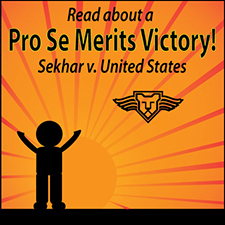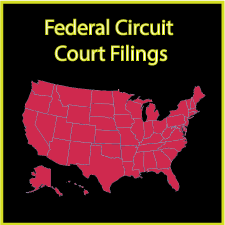Hedges v. Obama (January 2014): Interview with Christopher Hedges
The Supreme Court Press “Petition of the Month”TM for December 2013 is Hedges et al. v. Obama et al.. Supreme Court Dkt. No. 13-758, an appeal coming out of the 2nd Circuit from attorneys Bruce Afran and Carl Mayer.
Questions Presented:
Does the Second Circuit opinion overturning the District Court (that had held a law permitting the military to indefinitely detain Americans is unconstitutional) depart from this Court's prior holdings on First Amendment standing in "fearbased" or "chilling effect" cases, so that absent review, United States citizens, legal residents and other persons are threatened with indefinite military detention, thereby infringing their First and Fifth Amendment rights? [ . . . ] To the extent that the Second Circuit opinion holds that Korematsu is among the “existing law and authorities” under § 1021(e) that relate to military detention of citizens and legal residents, should Korematsu be overruled?
Did you know that in 2011 Congress passed a law allowing for the indefinite detention of American citizens in black, off the grid prisons without access to lawyers, judges, or family? If you think that "it couldn't happen here" - it just did!!! The bill is the National Defense Authorization Act (NDAA) of 2011, the defense spending bill. Buried in this document is § 1021(e) which gives the military carte blanche to indefinitely detain American citizens. The petitioners in this case are prominent journalists and scholars who, in the line of their work, are frequently in contact with individuals deemed, or who may later be deemed to be terrorists. Because of the vagaries and sweeping breadth of § 1021(e), the Petitioners fear they could be swept up and locked away for meeting with a terrorist, sharing a cup of tea, giving them a ride in a car, or discussing world events with them in a manner that could be deemed "assistance." They sought, and won, a permanent injunction at the district level, which was subsequently overturned on Government appeal. The Second Circuit held that the Petitioners lacked standing because they had not yet been detained. The Petitioners argued for standing based upon the reasonable fear of detention chilling their First Amendment rights. The Second Circuit turns a blind eye to the Kafkaesque fact that a person who is detained under § 1021(e) would be unable to petition a court for relief and therefore obtaining standing would be impossible. |
 Section 1021(b)(2) of the National Defense Authorization Act (NDAA) permits the U.S. military to detain anyone, including U.S. citizens, who “substantially support”-- an undefined legal term -- al-Qaida, the Taliban or “associated forces,” again a term that is legally undefined. - Christopher Hedges
Section 1021(b)(2) of the National Defense Authorization Act (NDAA) permits the U.S. military to detain anyone, including U.S. citizens, who “substantially support”-- an undefined legal term -- al-Qaida, the Taliban or “associated forces,” again a term that is legally undefined. - Christopher HedgesChristopher, thank you so much for taking the time to interview with us. You are truly courageous and a defender of the nation’s values for leading the charge against the NDAA, Section 1021(b). |
|
Thank you, but the idea to challenge the NDAA came from the attorneys Carl Mayer and Bruce Afran. They were looking for someone they felt had standing to file the case and came to me. I only had to show up in court in a coat and tie. They did all the hard work. |
|
Can you explain for our readers what the 2011 National Defense Authorization Act (NDAA) Section 1021(b) says and what its implications are for American citizens? |
|
Section 1021(b)(2) of the National Defense Authorization Act (NDAA) permits the U.S. military to detain anyone, including U.S. citizens, who “substantially support”-- an undefined legal term -- al-Qaida, the Taliban or “associated forces,” again a term that is legally undefined. Those detained can be imprisoned indefinitely by the military and denied due process until “the end of hostilities.” In an age of permanent war this is probably a lifetime. Anyone detained under the NDAA can be sent, according to Section (c)(4), to any “foreign country or entity.” This is, in essence, extraordinary rendition of U.S. citizens. It empowers the government to ship detainees to the jails of some of the most repressive regimes on earth. |
|
What are the implications of NDAA Section 1021(b) on journalists? |
|
Robert M. Loeb, the lead attorney for the government argued in the 2nd Circuit Court of Appeals that as “independent journalists” we were exempt from this section of the law. Loeb stated that if journalists used journalism as a cover to aid the enemy, they would be seized and treated as enemy combatants. But, he assured the court, I would be untouched by the new law as long as “Mr. Hedges did not start driving black vans for people we don’t like.” Loeb, however, did not explain to the court who defines an “independent journalist.” |
|
Do you think that the NDAA Section 1021(b) has changed the way you or your colleagues in journalism report on people that might be deemed terrorists? Do you believe that the American public is less informed because of NDAA Section 1021(b)? |
|
Yes, of course. If you have direct relationships as a reporter with groups defined by the government as terrorist organizations you can be detained under this law. And reporters know it. It is not very problematic for a reporter to interview and report the views of these groups and individuals, denying the public viewpoints that, while hostile to the United States, need to be heard to make informed decisions. |
|
Have you ever been detained or harassed by the military or a national security agency/group in the course of your work? |
|
Yes. During the first Gulf War I was detained by the military while working as a reporter for The New York Times for reporting a story – gouging by Saudi store owners of US troops – that had not been approved by the military. I was also stopped and held for an hour by Homeland security in the Newark airport for over an hour after returning from a speaking engagement in Italy. I was not given any explanation for the detention at Newark, although I asked for one at the airport and later reached out to Homeland Security. I did overhear a supervisor tell the official seated at the computer terminal in front of me in the room where I was being held in the airport say “He’s on a watch. Tell him he can go.” |

Isn’t it true also that a person that yesterday that might have been branded a terrorist (e.g. Nelson Mandela) might later become an ally? Isn’t that also the history of the tribes that form the Taliban, which were once allies and are now terrorists? Given the shifting nature of alliances and the continual war footing on which we stand, doesn’t NDAA Section 1021(b) put most international correspondents at some level of risk. |
|
Yes, yesterday’s terrorists become today’s negotiating partners. I saw this in Central America with the FMLN in El Salvador, with the Sandinistas in Nicaragua, with Yasir Arafat in Palestine, with the PKK in Turkey. The list is endless and, as you mention, includes Nelson Mandela and the Taliban. It is the job of foreign correspondents to interview and report on our adversaries and this law puts such journalistic work at grave risk. |
|
How aware are other journalists of NDAA Section 1021(b) and the Hedges v. Obama case? Are they supportive of you, or are they towing the party line? |
|
The journalistic community has been disturbingly passive. The New York Times, to its credit, covered our case and wrote an editorial lauding Judge Forrest’s ruling against the government. The Washington Post denounced the ruling, which seems to me an odd stance for a newspaper to take if only out of enlightened self-interest. But because the measure has bi-partisan support the slanted cable channels such as MSNBC and FOX did not cover the case. The public knows little about the case because of this failure on the part of the commercial television shows to do their job as journalists. |
|
| Many Americans don’t want to hear your message or heed your warning. Do you think the average American buried in their daily routine needs to be worried about NDAA Section 1021(b)? | |
Yes. Obama is cut precisely out of that mold of Bill Clinton. He purports to support civil liberties while destroying them. The Democratic Party, in Europe, would be considered a far-right party. Obama's assault on civil liberties has, in fact, been far worse than under George W. Bush: an absolutely remarkable fact. The FISA Amendment Act, which retroactively makes legal what, under our Constitution, has traditionally been illegal: the warrantless wiretapping, monitoring, and eavesdropping of tens of American citizens. The radical - and I think most dispassionate legal scholars would go, inappropriate -interpretation of the 2001 Authorization for Use of Military Force act as giving the government the right to assassinate American citizens... and of course I'm speaking about Anwar al-Awlaki, the Yemeni cleric... and not, incidentally, his 16-year-old son, two weeks later, who was on no terrorism list at all. |

In 2003, you were booed off the stage when you warned a commencement audience about the coming debacle in Iraq. If you gave a speech today warning about NDAA Section 1021(b) do you think you’d still be booed, or has the mood of the country changed? |
|
The mood of the country has changed. Across the political spectrum citizens do not support this evisceration of the rule of law and legal protections. The problem is that our elected officials, along with our courts, and most of our press, have become wholly owned subsidiaries of the corporate state. |
|
| How did the plan to pre-emptively seek an injunction form? Was it Don Quixote tilting at windmills or did you believe that you had a chance to win? How did you recruit the other Petitioners? | |
Carl, Bruce and I felt there had to be some challenge, that we could not accept his without a fight. We did not think we would win. No one did, especially given the string of awful judicial rulings since 9/11 that have sacrificed our most basic Constitutional rights on the altar of national security. But we knew it was wrong not to raise the alarm. Once we began the case other plaintiffs joined, including Noam Chomsky and Daniel Ellsberg. This was a great help. |
|
You had an amazing moment of glory when you won a permanent injunction from the district court. How did you feel when that happened? Did you celebrate? Did you know it would be a short lived victory and that the fight would have to be taken to the Supreme Court? |
|
I knew at the end of the trial that government’s case was weak, especially when Judge Forrest repeatedly asked the government if they could guarantee that I would not be charged under this provision and the government refused to issue such a guarantee. So I thought we had a decent chance. We knew the government would appeal, what we did not expect was the aggressive manner in which they appealed, demanding that the law be put back on the books until their appeal was heard. Judge Forrest refused this request. The 2nd Circuit granted it. Carl, Bruce and I assume this is because the government is already holding U.S. citizens, probably dual nationals in some of our black sites, and did not want to be in contempt of court. |
|
The Second Circuit said that you lacked standing to file the suit because you had never been detained. However, if you were detained under NDAA Section 1021(b), you would be in a black off the grid prison and not be allowed to file a suit. How Kafkaesque is that? |
|
Exactly. If I was detained under this provision of the NDAA no one would know where I was or what had happened to me. |
|
If you could have a private cup of coffee with the Justices of the Supreme Court and have them remember one sentence, what would it be? |
|
You have a sworn duty to uphold and defend our Constitutional right to due process, freedom from military and indefinite detention and a free and unfettered press. |
 (The one message I'd like the Supreme Court to remember is) You have a sworn duty to uphold and defend our Constitutional right to due process, freedom from military and indefinite detention and a free and unfettered press.
(The one message I'd like the Supreme Court to remember is) You have a sworn duty to uphold and defend our Constitutional right to due process, freedom from military and indefinite detention and a free and unfettered press.



---Bryan-Krumm.png)
---ZoeSpencer.png)


